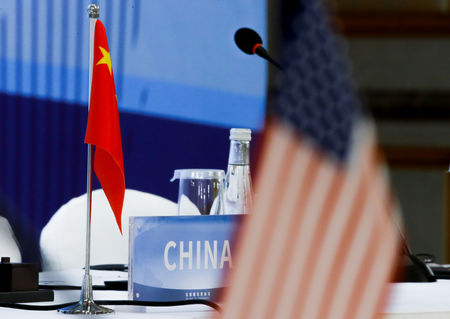
Investing.com — The US election results carry significant implications for emerging markets (EMs), with trade tensions and currency adjustments shaping the outlook, according to a recent report from Bank of America (BofA).
The potential for a renewed US-China trade war, especially if Trump wins, is a major concern.
“EM fund outflows are likely to materialise if trade war concerns become manifest near term,” BofA strategists David Hauner and Claudio Piron said in a note.
Strategists point out that many investors have not clearly positioned themselves for one outcome or another given “too low” conviction levels.
“Clients told us that they were running very low levels of risk, but they had definitely not positioned for a trade war scenario,” strategists noted.
Instead, they focused on trading strategies that involved selling US dollar rallies and buying dips in EM currencies.
The implications of a trade war scenario for EM fundamentals “should be taken very seriously,” strategists stress, adding that “even conservative assumptions on tariffs” could have a significant impact on EM foreign exchange equilibrium rates.
This is especially true for Europe and North Asia, where limited fiscal space restricts economic stimulus options. For fiscally vulnerable nations like Brazil, a stronger dollar and rising interest rates could add further strain.
The US dollar could see “material further upside” against EM currencies, BofA’s team noted, putting additional pressure on interest rates and external debt spreads.
“Markets which are particularly open to trade are likely to underperform,” strategists wrote. “Rates should eventually come down as the growth impact dominates over the FX pass through, but it’s too early to fade the move higher.”
Still, BofA sees eventual opportunities in markets with solid fiscal and inflation credibility where rate cuts may be advantageous as growth challenges begin to dominate over currency pressures.
In EM Asia, much depends on China’s response. Policymakers are expected to prioritize currency stability, especially if USD/CNH exceeds 7.30. However, BofA warns, “this policy tension could put downside pressure on an equity rally unless the fiscal impulse is strong.”
China’s response to potential tariffs will likely set the tone for other Asian economies, influencing their currency and trade policies.
For smaller, open economies in Asia, a protectionist US policy would raise challenges on two fronts: diminished trade volumes and inflationary pressures from US tariffs. The latter could disrupt easing cycles in countries like Korea, Indonesia, and Thailand. Ironically, US tariffs could induce disinflation across Asia, as China shifts exports to other EMs, prompting “greater monetary tension as Asian central banks feel the need to cut as exports and inflation decline, but USD is strong.”
Overall, BofA expects North-East Asian currencies, such as the yuan, won, and Taiwanese dollar, to underperform relative to their South-East Asian counterparts. An exception is the Sinapore dollar, which has maintained strength due to policy credibility and investment inflows but could weaken if global protectionism persists.
This post is originally published on INVESTING.


